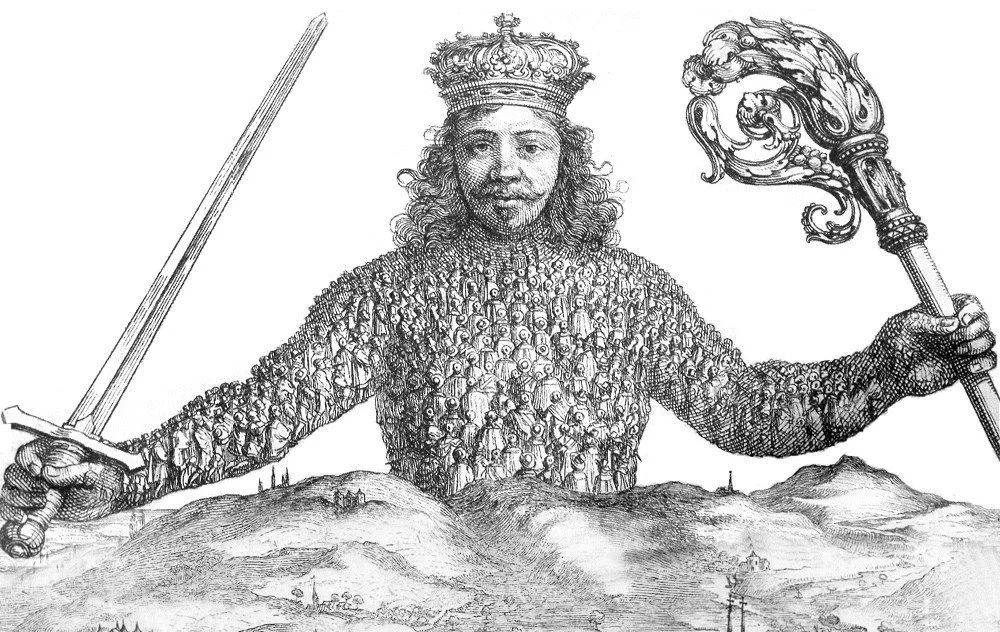The Enlightenment was an intellectual and cultural movement that emerged in the 17th and 18th centuries, emphasizing reason, individual rights, and scientific inquiry. Enlightenment thinkers challenged traditional authority and laid the foundation for modern democratic governance and human rights. Here are four major thinkers of the age: Thomas Hobbes, John Locke, Baron de Montesquieu, and Voltaire.
Hobbes and Locke: Social Contract Theories
The social contract theory is the idea that individuals willingly give up some freedoms in exchange for protection and order provided by the state. However, Thomas Hobbes and John Locke had very different views on human nature and the role of government.
Thomas Hobbes (1588-1679)
Major Work: Leviathan (1651)
Hobbes believed that humans are naturally selfish and prone to violence. He argued that life in a state of nature—without government—would be "solitary, poor, nasty, brutish, and short."
To avoid chaos, Hobbes believed that people must enter into a social contract and submit to an absolute sovereign, a ruler with total authority. He saw monarchy as the best form of government to maintain order.
John Locke (1632-1704)
Major Works: Two Treatises of Government (1689)
Unlike Hobbes, Locke had a more optimistic view of human nature, arguing that people are born with natural rights—life, liberty, and property.
He believed that governments should protect these rights, and if they fail to do so, citizens have the right to overthrow them. Locke’s ideas influenced democratic revolutions, including the American and French Revolutions.
Montesquieu and the Separation of Powers
Baron de Montesquieu (1689-1755)
Major Work: The Spirit of the Laws (1748)
Montesquieu argued that to prevent tyranny, government power should be divided into three branches: executive, legislative, and judicial.
This idea of separation of powers became a foundational principle in modern constitutional systems, influencing the U.S. Constitution and other democratic governments worldwide.
Voltaire and Religious Tolerance
Voltaire (1694-1778)
Major Works: Candide (1759), Letters on the English (1733)
Voltaire was a fierce critic of religious intolerance and government-imposed religion. He advocated for freedom of speech and religious tolerance, arguing that individuals should be free to believe as they choose.
His critiques of the Catholic Church and state-enforced religion helped shape modern ideas about individual liberties and the separation of church and state.

